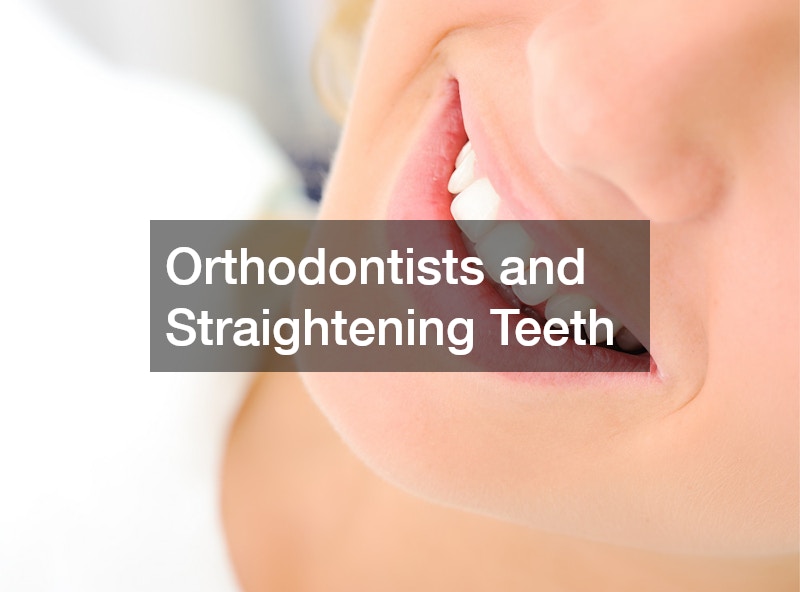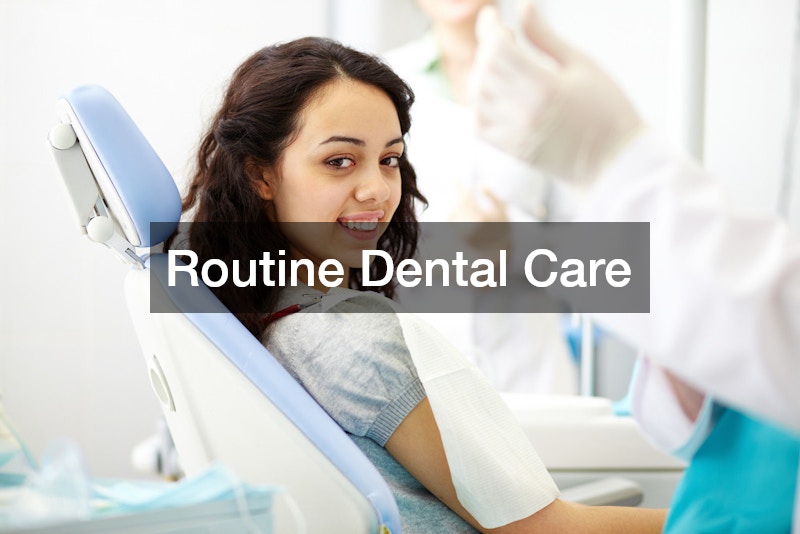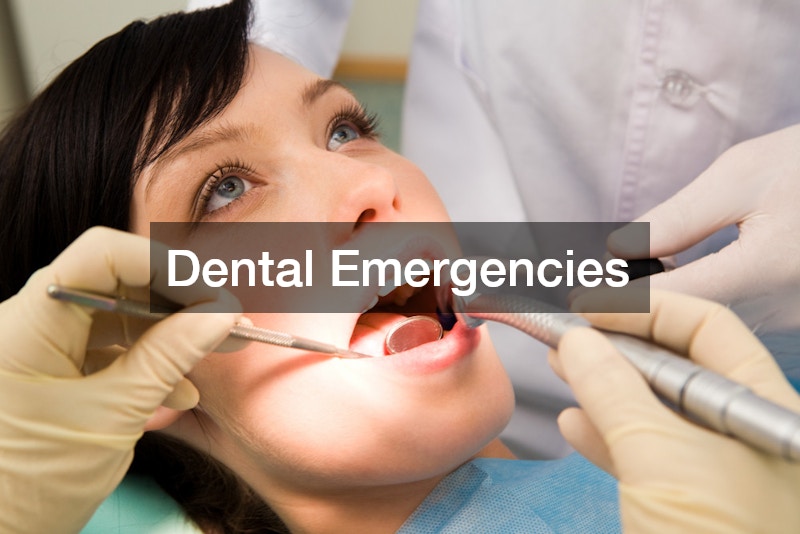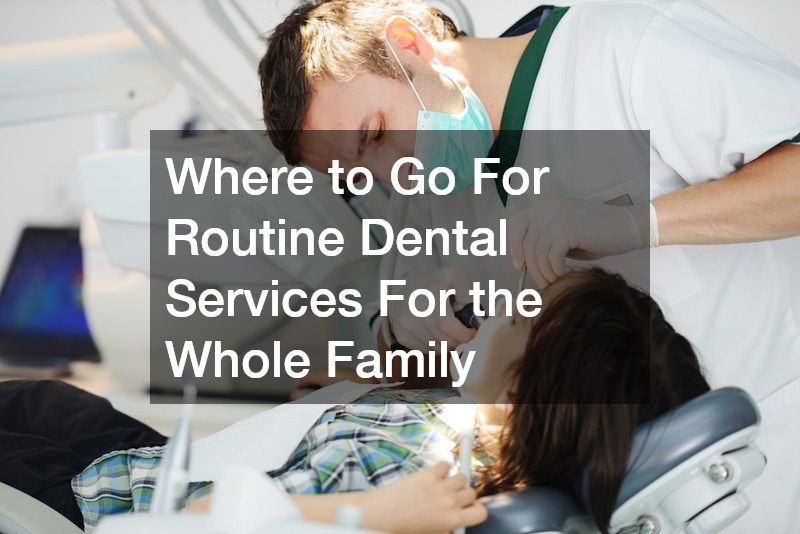In modern healthcare, oral health is a vital component that often gets overlooked. Despite the crucial role teeth play in our overall well-being, many people tend to neglect routine dental services until issues become unmanageable. This article aims to illuminate the various facets of dental care, emphasizing the importance of regular check-ups and treatments. With the rapid advancements in dental technology, treatments like Invisalign are revolutionizing orthodontics, making teeth straightening more accessible and comfortable. We’ll explore not only such innovations but also delve into a comprehensive look at services provided by cosmetic, pediatric, and routine dentists. Understanding the diversity in dental care—from emergency treatments offered by implant dentists to aesthetic enhancements—is essential for managing oral health. Finally, we’ll examine the roles of other healthcare professionals, such as sleep doctors and primary care physicians, highlighting how they intersect with dental care. Throughout this guide, routine dental services will be underscored as a fundamental part of maintaining a healthy, appealing smile.
Orthodontists and Straightening Teeth

Orthodontists play a pivotal role in the health and alignment of teeth. These specialists focus on correcting irregularities. Innovations like Invisalign have transformed traditional orthodontic methods. Routine dental services often incorporate check-ups and necessary adjustments to Invisalign aligners. This enhances patient comfort compared to traditional braces.
Invisalign aligners are transparent and removable, providing an aesthetic advantage. Unlike conventional brackets and wires, Invisalign allows for easier maintenance of oral hygiene. Consequently, routine dental services include instructions on cleaning aligners and monitoring progress. Orthodontic treatments aren’t just for aesthetics; they’re crucial for oral health.
Misaligned teeth can lead to various dental complications if left untreated. Issues such as difficulty in chewing and a higher probability of tooth decay are common outcomes. Routine dental services provided by orthodontists ensure early identification of potential problems, making proactive care easier and more effective. Regular consultations help mitigate long-term issues.
Perfecting Smiles
Achieving a perfect smile often begins with a cosmetic dentist. These professionals focus on improving the appearance of teeth and smile aesthetics. Procedures include teeth whitening, veneers, and bonding, all of which are part of routine dental services. Such treatments aim to boost confidence and enhance one’s overall appearance.
Cosmetic dental procedures often intertwine with routine dental services like cleanings. Teeth cleaning not only maintains oral health but preps the mouth for cosmetic enhancements. Ensuring clean, plaque-free teeth sets the stage for effective cosmetic treatments. Thus, routine dental services are an integral part of any cosmetic plan.
A significant aspect of cosmetic dentistry involves personalization. Every patient’s needs differ, requiring a tailored approach to achieve desired results. Routine dental services, including consultations and follow-ups, help in tracking progress and adjusting treatments. This customization ensures the best possible outcome for each individual’s smile.
Your Children’s Teeth
Maintaining the oral health of children is a task suited for a pediatric dentist. These specialists cater to the unique dental needs of young patients. Routine dental services play a pivotal role in monitoring the development of a child’s teeth. They ensure early detection of any potential oral issues.
Routine visits to a pediatric dentist are essential from the age of one. Such visits include examinations, cleanings, and sometimes fluoride treatments. Regular check-ups not only address dental health but also educate both children and parents on proper oral hygiene habits. Establishing these habits ensures lifelong dental health.
Parents can expect a two-fold approach during visits: prevention and treatment. Prevention focuses on educating children about brushing and flossing while treatment addresses current tooth and gum issues. Pediatric dentists provide routine dental services with a focus on both immediate care and long-term health benefits.
Routine Dental Care

The cornerstone of dental health lies in routine dental care, encompassing regular teeth cleaning and check-ups. Teeth cleaning removes plaque and tartar, preventing decay and gum disease. Such services are essential for maintaining oral hygiene and form a major part of routine dental services. Regular cleanings utilize instruments and techniques that provide a deeper clean than home care.
Routine dental care isn’t just about cleaning; it’s also an opportunity for dental professionals to monitor oral health. Dentists assess the condition of teeth and gums and identify potential problems early. This proactive approach exemplifies the importance of routine dental services. Additionally, cleanings help freshen breath and polish teeth.
Frequent dental visits are crucial for preventing more serious health issues. Regular assessments allow dentists to detect signs of oral cancer and other anomalies early. Routine dental services, especially routine exams, and cleanings, are preventive measures offering a defense against extensive future treatments. These visits are crucial for whole-body health.
Where Do Teenagers Go For Dentistry?
When it comes to adolescent dental care, a childrens dentist, or a family dentist, often provides the necessary services. They specialize in transitioning patients from pediatric to adult dental needs. Routine dental services for teenagers typically include cleanings, braces consultations, and education on maintaining good hygiene. Regular exams help in tracking oral development during these critical years.
Teenagers tend to have unique dental challenges due to rapid growth and dietary preferences. Services often include counseling on the consumption of sugary foods and drinks. Children’s dentists equip teenagers with the knowledge to carry forward into adulthood. Routine dental services therefore cultivate long-term oral care habits during these formative years.
An important aspect of teenage dental care is orthodontic evaluation. Early assessment for potential braces, Invisalign, or other corrective treatments can provide long-term health benefits. By engaging with routine dental services early, teenagers can preemptively tackle alignment issues before adulthood. Family dentists act as a bridge between pediatric and adult dental care.
What to Do When a Tooth is Knocked Out
A knocked-out tooth is a common dental emergency that can occur from accidents or injuries. The critical first step is to stay calm and seek immediate attention from an implant dentist. These specialists offer routine dental services tailored to reinsertion or replacement of teeth. Quick response time is crucial for successful intervention.
When facing such emergencies, the tooth should be handled by the crown and rinsed if dirty. Avoid scrubbing or removing attached tissue fragments. Implanted dental restorations require expert evaluation to ensure proper reattachment or suitability for implants. Routine dental services include guidelines on preserving the tooth for transport.
Implant dentists are trained to assess the condition of the knocked-out tooth and surrounding structures. Routine check-ups with an implant dentist ensure a comprehensive understanding of one’s dental health, which can be crucial during emergencies. Addressing dental emergencies promptly can prevent future complications and improve the outcomes of treatment.
Dental Emergencies

Dental emergencies encompass a range of situations from severe toothaches to broken teeth. Immediate attention from urgent care dental facilities is essential for managing pain and mitigating damage. Routine dental services play a preventive role by addressing underlying issues before they escalate. Regularly scheduled appointments help in identifying potential risks early.
Urgent care dental centers are equipped to handle emergencies effectively. These facilities provide necessary treatments such as pain relief, repairs, and extractions if needed. The continuity between routine dental services and emergency care ensures that patient history and oral health plans are consistently applied. This seamless transition improves prognoses.
Maintaining regular communication with your dentist and updating records are vital. When dental emergencies occur, having a comprehensive dental history available can expedite treatment. Routine dental services thus serve as a foundational element for emergency preparedness. They ensure that dental professionals can offer precise, immediate care.
Do Primary Care Doctors Look at Teeth?
While primary care doctors oversee general health, they typically don’t specialize in dental examinations. However, they can contribute to oral health by identifying potential issues during routine medical check-ups. Primary doctors often refer patients to dentists when dental-related health problems are suspected. Thus, routine dental services complement primary healthcare.
Interdisciplinary communication forms a critical part of holistic health management. Primary care physicians and dentists work together to address conditions that affect overall well-being. For instance, certain health concerns directly correlate with dental health, such as diabetes. Routine dental services thus align with ongoing medical treatments provided by primary care doctors.
Regularly visiting both your primary care doctor and your dentist maximizes the detection of health issues impacting each domain. They provide comprehensive care, reflecting how interconnected oral and systemic health truly are. This approach underlines the significant role of routine dental services in a broad healthcare strategy. A collaborative care model enhances patient outcomes.
Cosmetic Dental Work
Cosmetic dental work focuses on improving the aesthetics of one’s smile. Aesthetic doctors in dentistry work with advanced technologies and methods to achieve desirable outcomes. Their range of services includes procedures like veneers, bonding, and orthodontic appliances such as Invisalign. Routine dental services often include consultations and maintenance of these enhancements.
Achieving a beautiful smile requires more than just cosmetic procedures. Routine dental services are crucial in preparing and maintaining good oral conditions for cosmetic treatments to be most effective. Regular cleanings and assessments keep gums healthy and teeth strong. This foundation supports more specialized aesthetic interventions.
Cosmetic dentistry not only transforms appearances but can also have functional benefits. For example, correcting a misaligned bite through orthodontics can alleviate jaw pain or make chewing easier. Aesthetic doctors provide treatments that bridge beauty and function, emphasizing the importance of routine dental services in achieving overall oral wellness. Routine follow-ups ensure results last.
Exploring Other Healthcare Professionals

Aside from dentists, other healthcare professionals like sleep doctors contribute to oral health. Sleep doctors often address conditions like sleep apnea, which can have dental implications. Custom oral appliances provided by dental professionals feature prominently in managing these conditions. Routine dental services include assessing oral structures to ensure compatibility with sleep treatments.
The integration of sleep health into dental care exemplifies the interdisciplinary nature of modern healthcare. Sleep disorders can affect dental health, causing issues like teeth grinding or dry mouth. Dentists who collaborate with sleep doctors provide routine services that monitor these symptoms and tailor interventions accordingly. This team approach optimizes patient care.
Understanding the breadth of healthcare services available can significantly improve dental outcomes. By considering factors beyond traditional dental care, patients better manage unique conditions affecting oral health. Routine dental services complement treatments from sleep doctors, showcasing how comprehensive care extends beyond the dental chair. Coordination among professionals enhances patient well-being.
Conclusion
In conclusion, the realm of dental care is vast, covering numerous facets such as orthodontic corrections, cosmetic improvements, and emergency interventions. Each aspect plays a crucial role in maintaining an individual’s oral health and general well-being. Routine dental services serve as the backbone of this system, providing foundational care that supports specialized treatments and interventions. By adhering to a regimen of regular dentist visits, proactive care becomes possible, allowing for the early detection of potential issues and management of overall dental health. This proactive approach not only mitigates the risk of extensive procedures in the future but also enhances the overall quality of life by fostering confidence and comfort in one’s smile.
Moreover, integrating dental care with broader healthcare efforts—from collaborations with primary care doctors to specialized sleep interventions—reaffirms the importance of a holistic approach to health management. The connection between oral health and systemic health is increasingly recognized, with research linking oral conditions to heart disease, diabetes, and respiratory issues. Thus, routine dental services extend beyond the scope of just oral hygiene; they act as a preventive measure contributing to overall health and longevity.
As advancements in dental technology, like Invisalign, continue to evolve, they offer promising pathways for more effective, personalized care. These innovations, coupled with traditional practices, ensure that dental treatment remains patient-centric and adaptable to varied needs. Cosmetic procedures and orthodontic treatments also benefit from regular care, enhancing their efficacy and long-term results. Understanding and utilizing the full range of dental services enables individuals to achieve and maintain a healthy, beautiful smile across their lifespan.
Through intentional, informed choices, patients harness the interdisciplinary resources available, resulting in comprehensive care that meets both present needs and anticipates future challenges. Prioritizing routine dental check-ups builds a strong foundation for sustainable oral health. This consistency, combined with advancements in care and strategic collaboration between dental and medical professionals, underscores the value of a cohesive, long-term approach. In sum, routine dental services are the cornerstone of achieving enduring oral health and overall wellness, playing a pivotal role in lifelong health maintenance and contributing to a vibrant, confident smile that impacts well-being for years to come.
